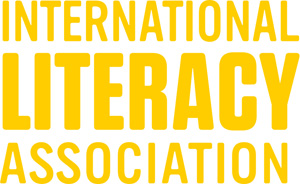 One week ago today in Minneapolis, MN, George Floyd, a 46-year-old black man, died when a white police officer pinned him down and kneeled on his neck despite Floyd repeatedly saying, “I can’t breathe.”
One week ago today in Minneapolis, MN, George Floyd, a 46-year-old black man, died when a white police officer pinned him down and kneeled on his neck despite Floyd repeatedly saying, “I can’t breathe.”
“I can’t breathe.” Those words have become a rallying cry at protests across the United States and have been chanted across the globe—as was the case in 2014, when similar protests broke out in response to the death of Eric Garner, a 44-year-old black man in Staten Island, NY, who said those same words 11 times before dying as a result of an extended chokehold from a white police officer.
It is heartbreaking how little progress has been made since 2014, and how many times history has repeated itself in the five and a half decades since the 1965 Watts riots in Los Angeles, CA.
With every fresh tragedy, social media feeds fill with demands for social justice, inspiring people to mobilize and take action.
And yet, here we are.
Again.
Like many organizations, ILA has denounced unconscionable acts of racially motivated violence and spoken out against systemic racism.
Time and again, these efforts have been met with criticism from those who believe a literacy organization like ILA has no business weighing in on political matters.
When we rejected the notion of making school safe by arming teachers, we were told it wasn’t our place to have an opinion.
When we presented a conference program addressing LGBTQ students and teachers, we were attacked for pushing a radical agenda.
When we stood with the American Library Association in protecting the rights of children in border detention centers in the United States, we were told to stay in our lane.
What those detractors fail to realize is that these issues are squarely in our lane. ILA’s vision is literacy for all. Responding and developing resources in service of improved outcomes for our learners is not only appropriate but also our responsibility.
At ILA, we always strive to do and be better. This will not stop. We will not shrink into the neutral zone.
Instead, we will continue to recognize and address biases in classroom instruction, policies, and practices.
We will continue to acknowledge and address academic disparities among students, particularly students of color.
We will continue to advocate for classroom and school environments that are diverse, inclusive, affirming, and culturally sensitive.
We will continue to fight to remove additional identified barriers preventing students from advancing their education.
We will continue to further the research critical to equitable literacy instruction and systems that give every child, everywhere access to the opportunities, supports, and resources needed to reach their full potential.
In the coming months, we will focus on trauma-responsive instruction (among other things). Not only because of what happened to George Floyd or Eric Garner or Michael Brown or Sandra Bland or countless others, but also because we must do our part to disrupt and dismantle systems of oppression in every corner of the world.
We hope that you will join us in these efforts.